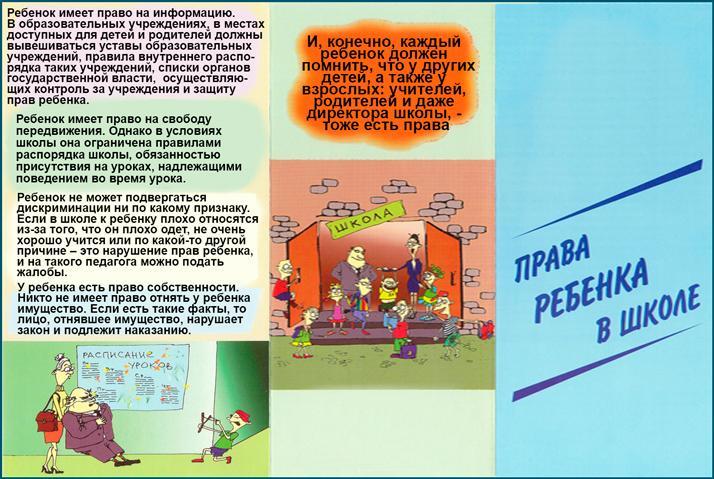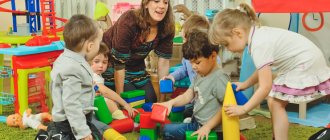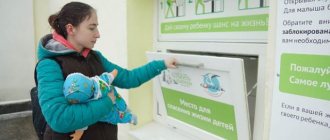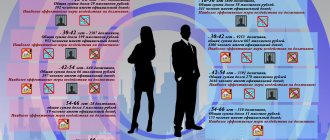Home / Family law / Children's rights
Back
Published: 08/14/2018
Reading time: 7 min
0
449
Children, like all other citizens, have certain rights as well as responsibilities. They are established, first of all, by the UN Convention on the Rights of the Child, as well as the Constitution, Family and Labor Codes, and some federal laws.
The law does not impose any obligations on children under six years of age, and starting from the age of six, a minor citizen has a number of obligations that he must fulfill.
The main responsibilities of children are:
- show respect for elders (parents or those who replace them, teachers);
- comply with norms and rules of conduct;
- do not violate the legal rights of other children and adults.
- Constitution of the Russian Federation on the responsibilities of the child
- Rights and responsibilities of a child in a family Rights of a child in a foster family
- The right to communicate with parents and other loved ones
- Right to defense
- Right to Express an Opinion
- The right to last name, first name and patronymic
- Changing your first or last name
The responsibilities of a student at school are as follows:
- be conscientious about your studies;
- say hello first and communicate respectfully with elders;
- treats work with respect;
- maintain a daily routine;
- absence or truancy without good reason is unacceptable;
- adhere to the school charter;
- follow safety precautions; if any dangerous objects are found, you should immediately inform an adult;
- maintain order in the school and on the school grounds.
What should a child of four years old do?
At four years old, a child should:
- Help mom set the table. Place plates, forks/spoons on it. Depending on what kind of food you plan to eat.
- Helping mom clean the kitchen.
- Know how to choose quality products. Bread, different types of cheeses, pasta, cereals and so on.
- If you have your own plot of land, then the child should help you on it. For example, he can water the beds with you. It is not difficult. The child just needs to pick up the hose.
- Help mom while cleaning the house.
- The child should be able to make his bed before going to bed. And then cover it in the morning.
- Help mom wash dirty dishes. At least one or two plates. Or put dirty dishes in the dishwasher with it. Launch it.
- Wipe dust off shelves. And other pieces of furniture.
- Make your own sandwiches with mom's help. The child must learn to spread butter on bread. And also pour milk over cereal.
- Mind your own business without requiring adults to entertain him.
- Take things to the balcony after washing and hang them on a special drying rack.
- Helping mom hang towels on the balcony.
Basic rights of the child at school
The protection of human rights and freedoms is the main responsibility of the state. Particular attention in this issue is paid to children, since they cannot stand up for themselves on their own. Minor citizens spend a lot of time in schools. The basic rights of children in educational institutions are enshrined in the following regulations:
- UN Convention on Human Rights.
- Constitution of the Russian Federation.
- Federal Law on basic guarantees of children's rights in Russia.
- School charter.
Regulatory framework of the right to education
According to Russian law, every school must have a person holding the position of ombudsman for children's rights. He has a range of responsibilities. Firstly, prevention of rights violations. Secondly, carrying out activities to educate students and their parents. Third, consideration of student complaints. In practice, such a specialist is not always available.
Combining all the above laws and regulations, we can highlight the following rights of the child at school:
- Choosing an educational institution with the possibility of transferring from one school to another at the request of the student or parents.
- Various educational programs, in particular homeschooling, if the child has special needs.
- Free access to the school library.
- Free assistance from teachers in the process of acquiring knowledge.
- Safe environment - equipped classrooms, maintaining a comfortable temperature, and so on.
- Voluntary attendance at additional sections and clubs on a paid and free basis after the basic school day.
We will consider some of the rights described above in more detail below. But first it is worth mentioning a number of other possibilities enshrined in the Constitution:
- free medical care while on school premises;
- choice of religion, expression of one’s beliefs;
- access to information about the level of knowledge and training;
- gender equality;
- inviolability of private property.
Special adaptations should be provided for children with disabilities that give them the opportunity to receive education on an equal basis with other children.
It is important to know! One of the state guarantees is free general education. If they wish, young people have the right to enter a secondary vocational or higher educational institution on a competitive basis.
Federal Law of July 24, 1998 No. 124-FZ “On the Basic Guarantees of the Rights of the Child in the Russian Federation”
Right to education
The state needs educated citizens who can work and bring benefit to the country and income for themselves. In this regard, obtaining an education is not just a right, but a duty. Education in general education public schools is provided free of charge, thus guaranteeing equality in access to knowledge.

Right to education in the Russian Federation
The school must also meet certain requirements and standards. In particular, the establishment must have toilets, a wardrobe, an open and closed sports ground, a canteen, and a library. Classrooms are equipped depending on the subject taught in them.
It is important to know! The school should encourage the development of children's sports, intellectual and other skills. For this purpose, circles, sections, and clubs are organized.
Rights in the lesson
In most cases, teachers only indicate the responsibilities of students in the lesson, but they also have a range of rights. These include:
- express personal opinion;
- go to the toilet, after asking the teacher about it;
- have access to grades as soon as they are assigned;
- leave the classroom after the bell rings for recess.
Read also: Law on OSAGO
If the teacher made a mistake in explaining the topic of the lesson, the student has the right to point it out.

Child's rights at school
Rights to healthy and quality care
At school, a student must not only gain knowledge, but also do it in a safe atmosphere. The educational institution must have a medical center with a qualified specialist who can provide first aid.
Other necessary measures include:
- maintaining cleanliness throughout the school grounds where children have access;
- good lighting in classrooms;
- temperature conditions corresponding to accepted standards.
Toilets should have hygiene products as well as towels.
Attention! Meals at school must be balanced, all products undergo mandatory quality and freshness checks.
Rights in class
Each class teacher regularly conducts a special lesson in which class issues are discussed. Children in such classes also have a range of special rights:
- Choosing a lesson topic. As a rule, a vote is held, and the initiator prepares an interesting presentation.
- Everyone has the opportunity to express their opinion; neither the teacher nor other students should interrupt or interrupt the speaker.
On the one hand, class is a mandatory lesson to attend, on the other hand, it has fewer requirements and more freedom. As a rule, issues of any activities or school events are discussed.
What should a child of six years old do?
At the age of six years, a child must:
- Understand when the weather is cold outside and when it is warm. And based on this, choose things for yourself. In cold weather, he should be able to dress as warmly as possible. And at an acceptable temperature - so that he does not feel hot.
- Vacuuming the apartment.
- Peel potatoes.
- Know how to make scrambled eggs. As well as various types of sandwiches. Both traditional and hot.
- Packing a backpack for school.
- Do not throw your clothes around the apartment. And, on the contrary, hang it on trempels. So that she doesn't hesitate.
- Helping father build a fire. Go with him in search of wood.
- Do not hit surrounding objects. Understand that any cut or wound can have negative consequences.
- Place washed dishes in their proper places. Sort it correctly: put forks with forks, knives with knives.
What is prohibited for a student when he is at school?
The ideal situation is when teachers and students respect their responsibilities and respect each other's rights. But this is not always achieved. There is a list of actions carried out by students that are unacceptable:
- bringing dangerous objects to school - weapons, chemicals, etc.;
- provoking conflicts, participating in fights;
- skipping classes without a good reason;
- is intoxicated at school;
- smoking on school grounds;
- theft and causing damage to third parties.
Read also: Law on redevelopment of apartments in 2021
Rude communication with teachers and employees of the institution is also unacceptable. A common form of punishment for such an offense is to call parents to school.
Attention! If a child behaves uncontrollably, breaks school property, and so on, the teacher has the right to contact medical personnel and security, call parents and law enforcement agencies.
What should a child between eight and nine years old do?
Between the ages of eight and nine years, a child must:
- Wash the floors in the apartment.
- Help mom move heavy objects. In particular, furniture.
- Prepare the bathroom for bath procedures. Type it without the help of your parents.
- Make sure his locker is always clean. And so that all things are in their places.
- Choose clothes in the store with your mother.
- Know how to fold blankets correctly. Make sure that they take up minimal space in the closet.
- Know how to sew on torn buttons.
- Learn to cook simple dishes. For example, scrambled eggs.
- Know how to put flowers in a vase.
- Congratulate relatives on holidays. Give them cards. Write various congratulations.
- Prepare all the necessary elements for starting a fire yourself. Light it up with dad.
What can your children do? List of household chores by age
At 2–3 years:
- put away toys;
- put dirty clothes in a basket;
- put away books and magazines
- Place pet food in a bowl (with a little help);
- wipe up spills;
- wipe off the dust.
At a certain point, I came to the conclusion that there is no need to give children any responsibilities except one: to clean up after THEMSELVES. If all family members do this, then I am left with a pittance. The eldest son has his own room, allocated with the condition that he will keep it in order. Once a week he vacuums it and wipes off the dust. I do control cleaning about once every 2 months. He irons his school trousers and cleans his shoes (me too).
The middle one has its own closet and table, keeps them in order, and wipes away dust. My husband vacuums the entire apartment once a week (except for the elder’s room) and irons it.
Each person puts the dishes from the table into the sink, and the husband loads them into the washing machine. My husband (sometimes my son) also goes to the store. I have to cook, do laundry, mop the floors.
Dashuk, conference participant at the 7th
At 4–5 years:
- all of the above;
- make your bed;
- take out a rubbish;
- clear the table;
- water plants;
- make breakfast from cereal.
At 6–7 years old:
- all of the above;
- sort laundry;
- sweep;
- help prepare and pack breakfast;
- set the table;
- clean the bedroom;
- pour drinks;
- to answer phone calls.
At 8–9 years old:
- all of the above;
- load dishes into the dishwasher;
- sort out purchased products;
- help prepare dinner;
- prepare your clothes for washing;
- peel vegetables;
- make toast;
- walk with the dog.
We have problems cleaning the floors. As a child, I was forced to wash the floors - I hated it so much, now my daughters have the same attitude. And then I started thinking - how can I change my son’s attitude? That is, somehow move a job everyone dislikes from a zone of dissatisfaction to a zone of joy?
We talked with our daughter and came up with an idea - when the whole family (except mom) washes the floor, mom bakes a special “cleaning” cake, which then everyone involved in cleaning eats. True, we have this recent introduction, there was only one pie. But that’s what the four-year-old called it—a “cleanup” pie, so maybe it will work out...
Eugenie, conference participant at 7th
At 10–12 years old:
- all of the above;
- remove dishes from the dishwasher and put them away;
- fold washed laundry;
- clean the bathroom;
- prepare simple meals;
- wash;
- cut the lawn;
- make your bed and change your bed linen;
- clean the kitchen;
- look after younger brothers and sisters.
Legislation on the rights and responsibilities of the child in the family and school
The rights and responsibilities of the child are enshrined in legislation:
- The Convention on the Rights of the Child was adopted by the UN and supported by the entire world community;
- The Constitution of the Russian Federation establishes the fundamental rights and freedoms of all citizens of our country;
- The Family Code of the Russian Federation regulates relationships within the family, the interaction of children with parents;
- The Civil Code contains information on the procedure for the adoption of minors;
- The Administrative Code is used in case of improper care and supervision of a child;
- Law 124-FZ “On Basic Guarantees of the Rights of the Child in the Russian Federation”;
- Law 273-FZ “On Education”;
- other regulatory documents.









